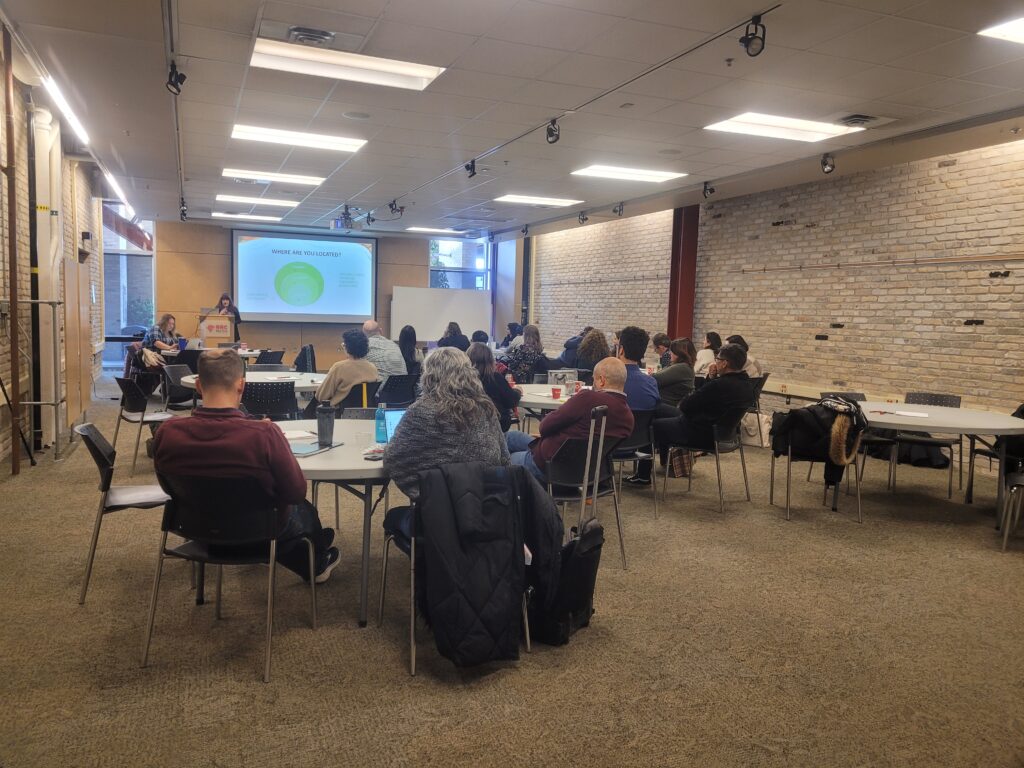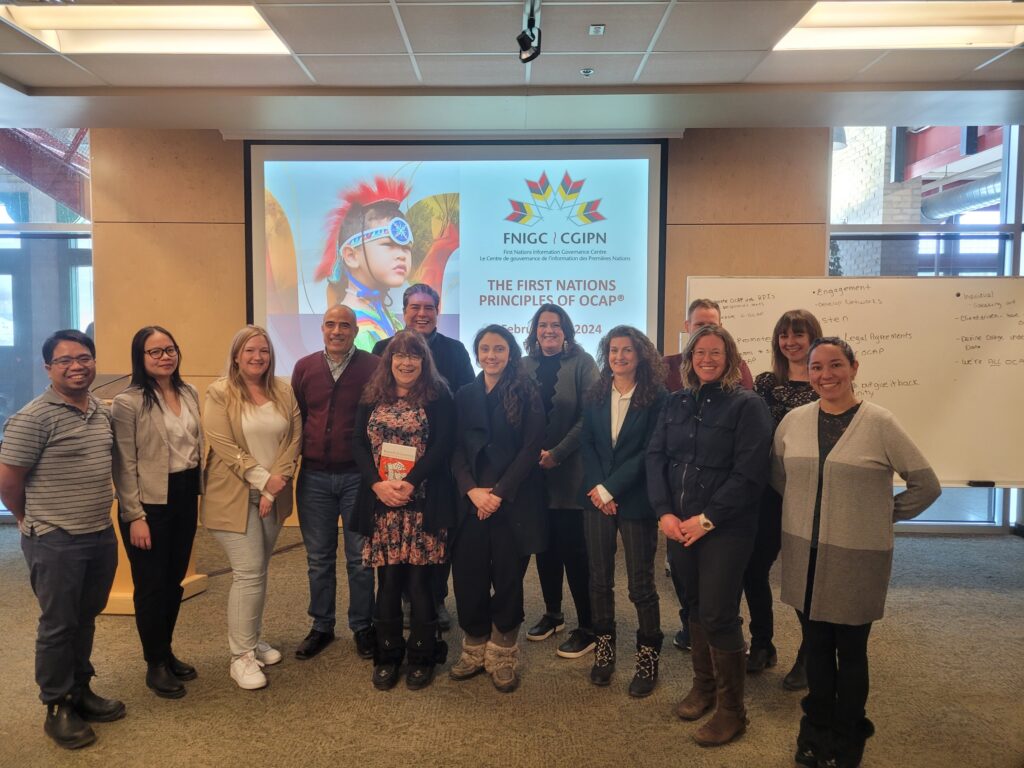RPI hosts training session on the principles of OCAP® and First Nations data sovereignty
RRC Polytech is committed to working with Indigenous Peoples to create opportunity through applied learning and research – so it’s imperative that the College community understands, respects and upholds the principles of OCAP® and the rights of First Nations to control their own information. Standing for Ownership, Control, Access and Possession, OCAP® is a tool that supports strong information governance and a path toward First Nations data sovereignty by establishing how First Nations’ data and information will be collected, protected, used, or shared.
The College’s applied research enterprise, Research Partnerships & Innovation (RPI) is uniquely positioned and eager to build relationships through collaborative initiatives and community-based research projects that contribute to transformative change by serving the needs of Indigenous communities.
RPI recently invited Leslie MacGregor, Senior Education Officer for the First Nations Information Governance Centre (FNIGC) to RRC Polytech to conduct a training and awareness session for all College staff to enhance their knowledge about the principles of OCAP® and Free, Prior, and Informed Consent (FPIC) as well as the importance of promoting First Nations data sovereignty.
“As partners, administrators, researchers and research leaders we need to ensure that OCAP® and FPIC principles are followed when First Nations data has the potential to be collected, protected, interpreted, stored, used or shared in any way and that our research addresses community-specific needs,” said Dr. Jolen Galaugher, Director of Research Partnerships and Innovation at RRC Polytech.
“We recognize that research in Canada has a long history of harm to Indigenous Peoples and communities and that it’s our responsibility to build trust by establishing authentic partnerships that adhere to the vision each community has for its future and respecting the goal of self-determination.”
The one-hour OCAP® training session was offered virtually as well as in-person and will have a lasting impact across multiple schools, disciplines and areas of the College. In total, 40 staff members participated in the awareness presentation while almost 30 completed the full workshop including members of the School of Indigenous Education (SIE), RPI, Library, Corporate Solutions, and RRC Polytech’s Research Ethics Board.
In addition to defining terms and outlining strategies that consider Indigenous practices and principles including a First Nation’s worldview, traditional knowledge and protocols, MacGregor’s presentation touched on overarching themes of reciprocity, relationships, rebuilding and respect and concluded with a question-and-answer period.
“Living our commitment to Truth and Reconciliation requires constant action. This training and awareness session with FNIGC is just one step in ensuring that the research we carry out minimizes harm and maximizes benefit to communities,” added Dr. Galaugher. “To do so will require continuous learning, not only through formal training sessions but also by actively and conscientiously engaging the perspectives of Indigenous researchers, Knowledge Keepers and community members who choose to join us on a mutually beneficial journey of discovery.”
To facilitate the transfer of knowledge from that continuous learning, RPI has also launched an Indigenous Perspectives in Applied Research Speaker Series with three talks and workshops held to date.

OCAP® is a registered trademark of the First Nations Information Governance Centre (FNIGC) For full context and additional details please visit the FNIGC website.

